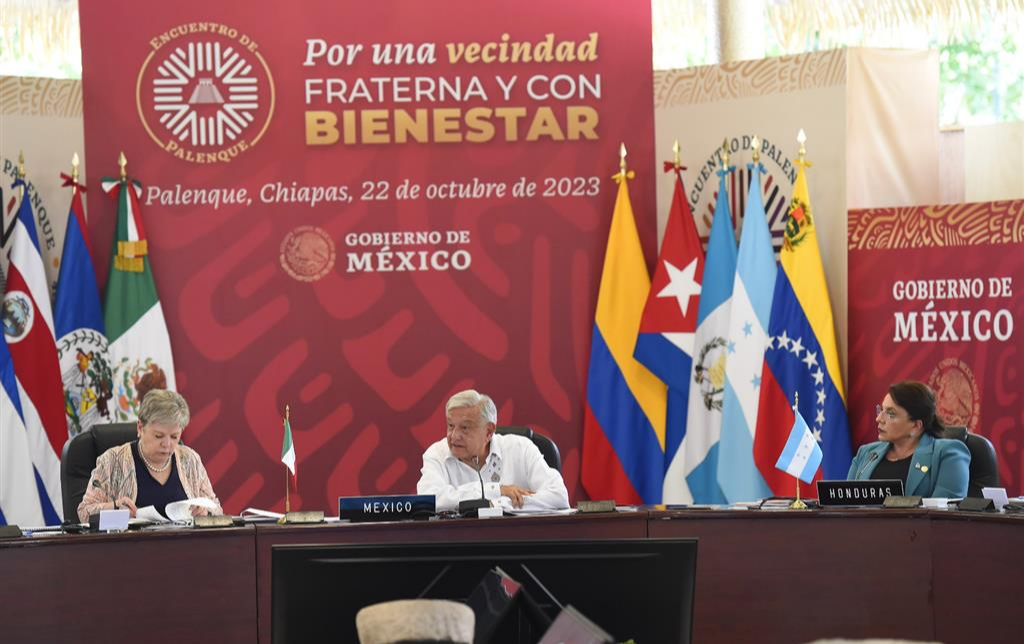
By Luis Manuel Arce Isaac
Mexico City, October 23 (RHC) -- Anyone who followed closely the important summit of 12 Latin American and Caribbean nations affected by the migration crisis must have noticed that all the criticism involved the United States.
It was a brief meeting, and as its convener Andrés Manuel López Obrador said, twice as good, because it initiated a new kind of regional union in the search for a decent solution to an unseemly situation created by the great-grandchildren and great-great-grandchildren of John L. O'Sullivan and James Monroe, who think the same way they do to chain Latin America and the Caribbean.
It is that, until this moment of change that humanity is experiencing, the community affected by the migratory exodus had not met to analyze and judge its deepest causes, and Palenque contributed in just two or three hours of analysis, not only to diagnose, but to confront them with a vision of victory.
If all the analyses of the 12 leaders had the United States and its aggressive foreign policy unbefitting of the new times at the center of their criticisms, the solutions also lead to that same country, which rejects that the best thing for everyone is a good neighborliness different from that of Monroism.
The latter was expressed in the motto of the meeting: "For a fraternal neighborhood with well-being" which, as defined by its convener, was "to join efforts, wills and resources to address the causes of the migratory phenomenon".
Taking this criterion as a guiding thread, and assuming in advance that the government in Washington will not budge from its position of denying resources to stop the exodus, the summit made a series of provisions for the region to try to mitigate the migratory crisis with its own resources.
Thus, the joint communiqué read by Foreign Minister Alicia Bárcenas, offers the central axes of an action plan that must be structured from now on in order to produce results and which involve the United States.
Thus, for example, the second of 13 points proposes to promote intra-regional trade in basic subsistence goods and services, promoting tariff preferences, quotas and the elimination of non-tariff barriers. Why? Because this has not been achieved with trade with the United States.
Another point is to urge the lifting of unilateral coercive measures imposed on countries in the region, which are contrary to international law and have serious repercussions beyond the target countries. Who is this directed at? The United States.
To urge countries of origin, transit and destination to implement comprehensive migration policies that respect the human right to migrate, safeguarding the life and dignity of migrants and their families. Needless to say, it goes against the colossus in front.
To call upon the countries of destination to adopt migratory policies and practices in accordance with the current reality of our region and to abandon those inconsistent and selective to avoid arbitrarily producing both call effects and deterrent effects such as the regularization of certain nationalities. Of course, this refers to the country itself.
Propose coordinated efforts to rethink the international financial architecture of sovereign debt to enable middle-income countries to achieve higher levels of development, close social gaps and reduce the intention to migrate. It would be gibberish to say that Washington is the addressee of this message.
There was also a very direct agreement in the same vein: "To propose to the governments of Cuba and the United States to hold a comprehensive dialogue on their bilateral relations as soon as possible. Cuba accepts it, of course. And the White House?
In short, parodying the Romans of so distant an era, all the roads that were traveled at the Palenque Summit led to the United States.

